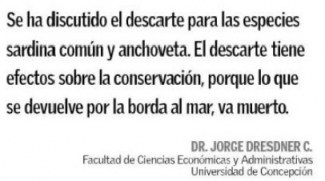FILTER
Displaying 2411 - 2420 of 3643 publications
This paper provides the first county-level analysis of the impacts of weather variability on rice yield in China, by compiling a unique panel on irrigated single-season rice and daily weather data. We…
| EfD Discussion Paper | ChinaWe estimate local effects of Payment for Environmental Services (PES) programs on poverty in Costa Rica between 2007 and 2009. Using household surveys and spatial geographic data, we are able to…
| EfD Discussion Paper | Central AmericaImplementing and complying with standards and certification often increases costs for supply chain actors. These increased costs are caused by upgrading production, logistics and marketing needed to…
| Peer Reviewed | KenyaThe economic importance of the various attributes of dryland nature-based tourism in the Kgalagadi area is generally unknown, as is the distribution of benefits from such tourism. This study seeks to…
| Peer Reviewed | South AfricaThis report presents an evaluation of the Environmental Economics Program (EEP), that consists of the two sub-programs; Academic Capacity Building Program at University of Gothenburg (CBP) and the…
| Report |Given the considerable popularity of community-based wildlife management as a conservation tool, it is of interest to assess the long-run sustainability of this policy not only in conservation terms…
| Peer Reviewed | South AfricaBecause the effectiveness of payment for ecosystem services (PES) programs depends on landowners’ engagement, understanding the relationship between the type of payment and participation is a key…
| EfD Discussion Paper | SwedenIn this paper, we investigate how different levels of entrance fees affect donations for a public good, a natural park. To explore this issue, the researchers conducted a stated preference study…
| EfD Discussion Paper | Central America, SwedenJorge Dresdner wrote an opinion article about discards in Chilean fisheries. http://www.elsur.cl/impresa/2014/05/09/full/2/
| Other Publications | ChileThis paper derives Pareto-efficient provision rules for national and global public goods in a two-country world, where each individual cares about his or her relative consumption of private goods…
| Peer Reviewed |